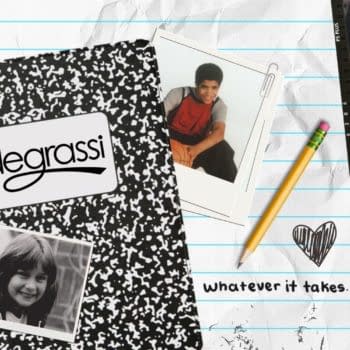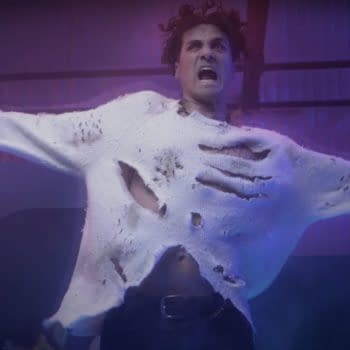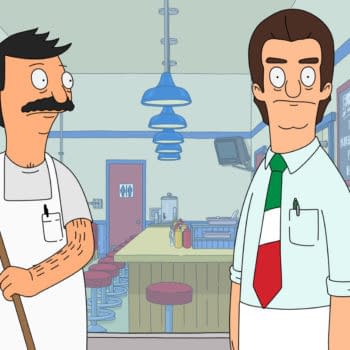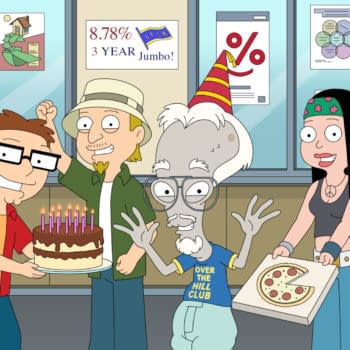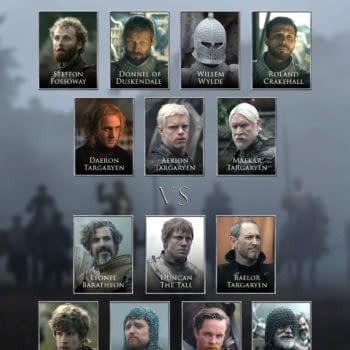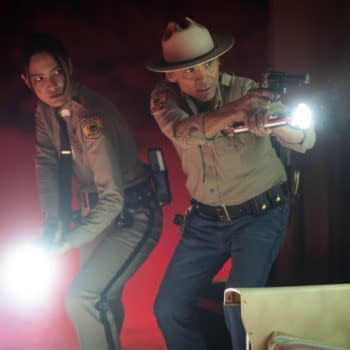Posted in: Netflix, Opinion, TV | Tagged: docuseries, netflix, nuclear power plant, opinion, reaction, three mile island
Three Mile Island Netflix Docuseries: A Nuclear Engineer Responds
My dad sat down with me to watch this Netflix docuseries, Meltdown: Three Mile Island, as we have watched similar programs in the past such as Chernobyl when it came out on HBO. We didn't necessarily watch this out of curiosity about the topic or subjects involved in radioactivity and nuclear power, it's because it hits close to home for my dad.
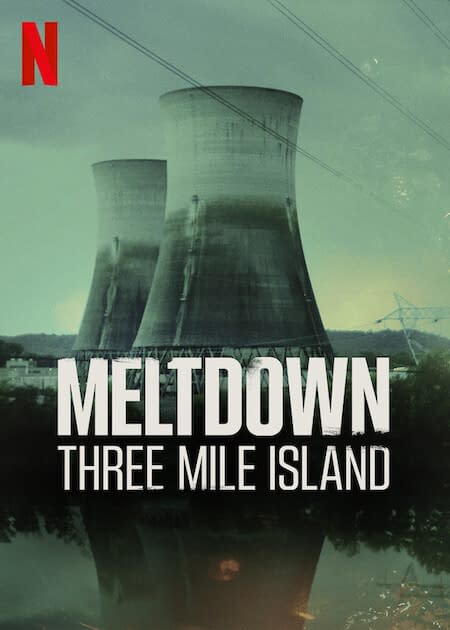
Before I get started, here's a look at the official trailer & overview:
From the acclaimed producers of Erin Brockovich and Academy Award-nominated® director Kief Davidson (The Ivory Game) comes a gripping four-part documentary series that tells the story of ordinary people having the courage to do extraordinary things. Meltdown tackles the near catastrophe at Three Mile Island nuclear power plant in Pennsylvania through the lens of chief engineer and whistleblower, Richard Parks, as well as the community it impacted. Dramatic reenactments, archival footage, never-before-seen home video, and in-depth interviews bring viewers into the worst nuclear incident in U.S. history. Meltdown: Three Mile Island is a Moxie Pictures (Wormwood) and MAS Production. Executive producers are Carla Shamberg, Michael Shamberg, Kief Davidson, Robert Fernandez, and Dan Levinson.
I'll give a little background on my dad Russell before we get started. My paternal grandfather worked in electrical contracting since my dad was little and around the age of 15, he went into working for him up until the age of 21. After working in electrical, my dad would join the United States Navy and work in submarines as a nuclear electrician for about five years, where he would be during the 1979 Three Mile Island meltdown. During his time in the Navy, my dad would work his first nuclear-related job in South Carolina at the V.C. Summer Station. The incident at Three Mile Island would be mentioned often as it took years to modify the systems and style of training afterward in every training program.
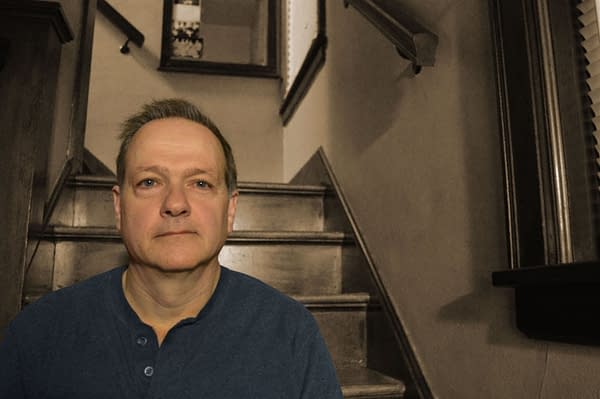
Fast forward some years and my dad would graduate with a Nuclear Engineering degree from The University of Maryland. Out of college, he went on to work in the industry in different states, such as South Carolina, Michigan, California, and eventually New York. In the early 2000s, working at the San Onofre Nuclear Generating Station, my dad worked as an operations training instructor and actually was present when a few who worked at Three Mile Island in 1979 came to visit his station. According to my dad, the biggest takeaway he got from their visit was that year after year they battled and were taken to court over the incident. While my dad was surprised at first, he could see how that could end up happening in the long run with those in charge at the time. Nowadays my dad works as a senior operations training instructor, teaching a lot of protocol and system operations for future and current operators within the plant.
On the Netflix app on our Roku, I click to play episode one (out of four in total). It wasn't even a minute in and my dad paused the episode to give me some background about where he was and what he understood about it at the time. Over in Kittery, Maine, my dad was in the shipyard (in the U.S. Navy at the time) when a call came in from his parents, my paternal grandparents were suddenly asking if they should evacuate their home… the problem is, they lived far away over in New Jersey. They weren't even close to danger according to my dad, but that's how panic spreads and it can be palpable even from far away. He remembers the news and more showing clogged roads filled with traffic and the alert for pregnant women and small children to leave Middletown, PA. Looking back on it now, over 43 years later, my dad understands how insane the panic was and why it didn't have to go in that direction.
Watching the first episode of Meltdown: Three Mile Island, it was clear that the reenactments were being a little overdramatic in the style of many docuseries before it. The way so many alarms went off at once wouldn't be accurate, according to my dad. The fear of the community was real, mainly spiked by the release of the film The China Syndrome only weeks prior. With what happened at Three Mile Island, minimal radiation was released and the dramatics made it feel closer to Chernobyl which was in no way the same thing. It was little details yet big moments not shown correctly, from the reactor containment's windows to where locations were shown in comparison to other areas of the plant. According to my dad, this was a hydrogen explosion with vented containment, and the information that was given publicly was misused and misunderstood.
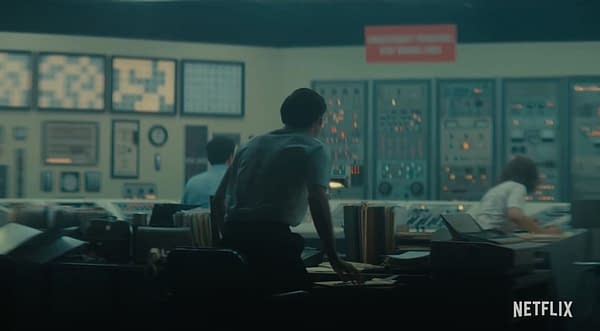
In the middle of the first episode, my dad said to me, "They didn't have adequate training to recognize the symptoms that it was open. So, they were losing water from the reactor continuously. The valve did not reclose, it opened and it should have reclosed but it didn't. And because of poor training and indications, they turned the safety injection pumps off that were keeping the reactor covered. So, if they didn't turn those pumps off the reactor would never have melted down. It actually did its function, but they were stupid and turned the pumps off." Meltdown: Three Mile Island became difficult to watch after the second episode. Both I and my dad saw things going in circles and simply an event divided into four unnecessary episodes. So much more factors into what could have happened and what did happen, especially when it came to any radiation released. Illnesses and more were lumped together as if anyone from a mile to 5 miles away would get the same levels. Factors play into it all, such as weather (rain bringing down the radioactivity to the ground level instead of the air), closeness to the plant itself, time of day they released, and more. Also, Lake Barrett was a fairly cold individual to be interviewed. While radiation might not have affected everyone, it did for some but details into why weren't necessarily explored in the right ways.
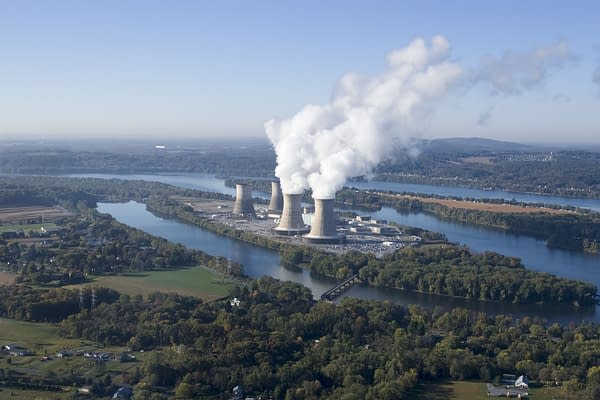
Nowadays there is a level indication in the reactor, but back then everything could have been stable without an indicator but they decided to turn those pumps off because they didn't truly understand what was going on. The docuseries failed to lay out how to tell this story in the right way, without going for the easy fearful reactions as if it is trying to be at the same level as the horrific events and secrecy of Chernobyl. Nothing was shown at the time in the first or second episode as to their training and the importance of what they thought was happening, that there was too much water in the reactor cooling system when that was not the case.
Overall the Netflix docuseries, according to the nuclear engineer/my father, it kept building dramatics towards future episodes instead of getting to the point on certain topics within the incident itself. Things went in circles and perspectives on the exaggeration of fear and limited understanding (or atomic bomb-centered understanding) were not justly explored. The designs in the U.S. at least compared to reactors like Chernobyl are vastly different, making the level of drama in this docuseries confusing and messy. There was an extreme lack of clarity when it came to random moments like President Carter's visit and history with nuclear submarines and reactors or the very brief animation explaining the system in episode one. There could have been docuseries with Meltdown: Three Mile Island, but in the end, it felt like someone writing an essay using every filler word and/or synonym to make a designated page count.





